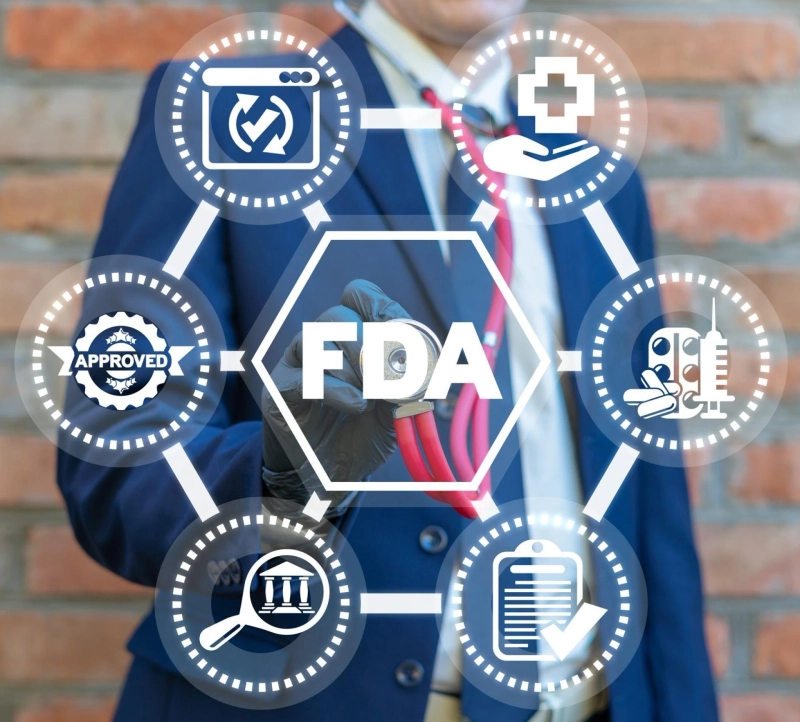FDA Attorney: Navigating Regulatory Compliance with Expert Guidance
In the realm of pharmaceuticals and healthcare products, ensuring compliance with FDA regulations is paramount. An FDA Attorney is your key partner in navigating the complex landscape of regulatory requirements, ensuring that your products meet safety and quality standards while minimizing legal risks.
The Role of an FDA Attorney
An FDA Attorney specializes in FDA regulations, providing legal counsel and representation to companies involved in the development, manufacture, and distribution of FDA-regulated products. Their expertise covers a wide range of areas, including product labeling, advertising, clinical trials, inspections, and enforcement actions.
Why You Need an FDA Attorney
Having an FDA Attorney on your side is crucial for:
- Compliance Assurance: Ensuring that your products meet FDA regulations from development to market.
- Risk Mitigation: Identifying and addressing potential regulatory risks before they escalate.
- Enforcement Defense: Representing your interests in FDA enforcement actions, such as warning letters, recalls, and injunctions.
FDA Consulting Services: Streamlining Compliance Efforts for Success
FDA Consulting Services offer invaluable support to companies seeking to achieve and maintain FDA compliance efficiently and effectively. From regulatory strategy development to quality system implementation, these services cover a spectrum of needs.
Overview of FDA Consulting Services
FDA consulting services encompass:
- Regulatory Strategy Development: Crafting a roadmap for navigating FDA regulations and achieving compliance goals.
- Quality System Implementation: Establishing robust quality management systems to ensure product safety and efficacy.
- Submission Preparation and Review: Assisting with the preparation and review of regulatory submissions, such as premarket applications and post-market reports.
Benefits of FDA Consulting Services
Partnering with FDA consultants offers several advantages, including:
- Expert Guidance: Access to specialized expertise in FDA regulations and industry best practices.
- Efficiency and Cost Savings: Streamlining compliance efforts to minimize time and resources spent on regulatory matters.
- Risk Management: Proactively identifying and addressing compliance risks to prevent costly setbacks.
FDA Label: Ensuring Compliance and Consumer Safety
FDA labeling requirements play a critical role in informing consumers about the safety, efficacy, and proper use of regulated products. From prescription drugs to dietary supplements, accurate and compliant labeling is essential for both regulatory compliance and consumer protection.
Key Elements of FDA Labeling
FDA labeling includes:
- Principal Display Panel (PDP): The main label panel that must contain essential product information, such as the product name, active ingredients, and dosage form.
- Drug Facts Label: Mandatory for over-the-counter (OTC) drugs, providing standardized information on active ingredients, uses, warnings, and directions for use.
- Nutrition Facts Label: Required for most packaged food products, detailing serving size, calories, nutrients, and % Daily Value.
Importance of FDA Label Compliance
Ensuring FDA Label compliance is critical for:
- Consumer Safety: Providing accurate and comprehensive information to help consumers make informed decisions about product use.
- Regulatory Compliance: Meeting FDA requirements to avoid enforcement actions, such as warning letters and product recalls.
- Brand Reputation: Building trust and credibility with consumers through transparent and compliant labeling practices.
FDA Detentions: Addressing Regulatory Non-Compliance
FDA Detentions occur when regulated products are found to violate FDA regulations and are detained at the border or within the United States. Understanding the reasons for detention and the procedures for resolution is essential for companies involved in international trade or domestic distribution.
Common Reasons for FDA Detentions
Products may be detained for various reasons, including:
- Mislabeling: Incorrect or incomplete labeling that fails to meet FDA requirements.
- Adulteration: Contamination or improper manufacturing practices that pose health risks to consumers.
- Unapproved Ingredients: Inclusion of substances not permitted by FDA regulations in food, drugs, or cosmetics.
Resolving FDA Detentions
Resolving FDA detentions involves:
- Communication with FDA: Providing requested information and documentation to address concerns and expedite release.
- Corrective Actions: Implementing corrective measures to address underlying issues and prevent future non-compliance.
- Legal Representation: Seeking assistance from FDA attorneys to navigate detention procedures and resolve compliance issues.
FAQs about FDA Attorney, Consulting Services, Label, and Detentions
Q: What is the role of an FDA attorney? A: An FDA attorney provides legal counsel and representation to companies regarding FDA regulations, compliance, enforcement actions, and more.
Q: How can FDA consulting services benefit my company? A: FDA consulting services offer expert guidance, efficiency, and risk management support to streamline compliance efforts and minimize regulatory risks.
Q: What are the key elements of FDA labeling? A: Key elements of FDA labeling include the principal display panel, drug facts label (for OTC drugs), and nutrition facts label (for food products).
Q: Why is FDA label compliance important? A: FDA label compliance ensures consumer safety, regulatory compliance, and brand reputation by providing accurate and transparent product information.
Q: What are some common reasons for FDA detentions? A: FDA detentions may occur due to mislabeling, adulteration, or the presence of unapproved ingredients in regulated products.
Q: How can companies resolve FDA detentions? A: Resolving FDA detentions involves communication with the FDA, implementation of corrective actions, and, if necessary, legal representation to address compliance issues.
Conclusion
Navigating the regulatory landscape of FDA compliance requires a comprehensive understanding of FDA regulations, expert guidance, and proactive risk management. By leveraging the expertise of FDA Attorney, consulting services, and ensuring FDA label compliance, companies can uphold the highest standards of quality, safety, and regulatory compliance in their products. Understanding the reasons for FDA detentions and knowing how to address them effectively is crucial for maintaining smooth operations and safeguarding consumer health.



